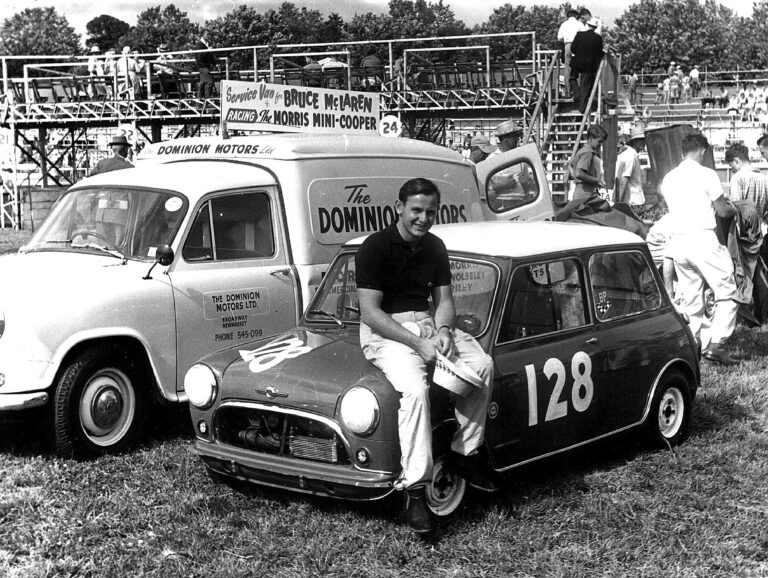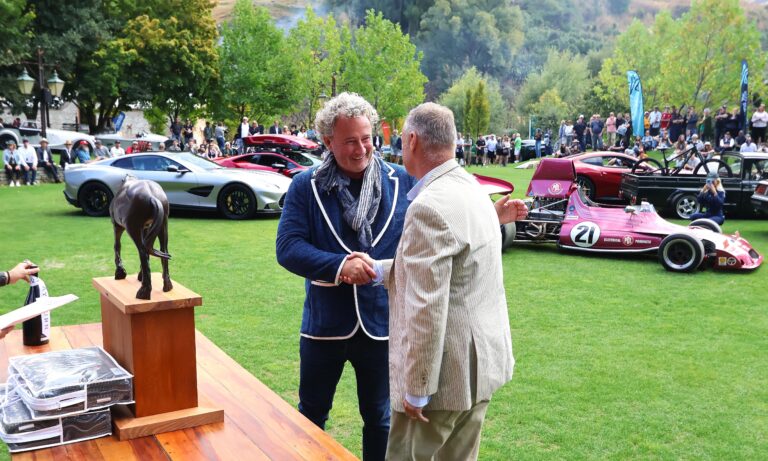Ford of Australia made the ultimate cruising Cortina but it tempted few of Ford’s Australian customers away from the big basic Falcon.
By Ben Selby, photography by Kallum Harris Photography
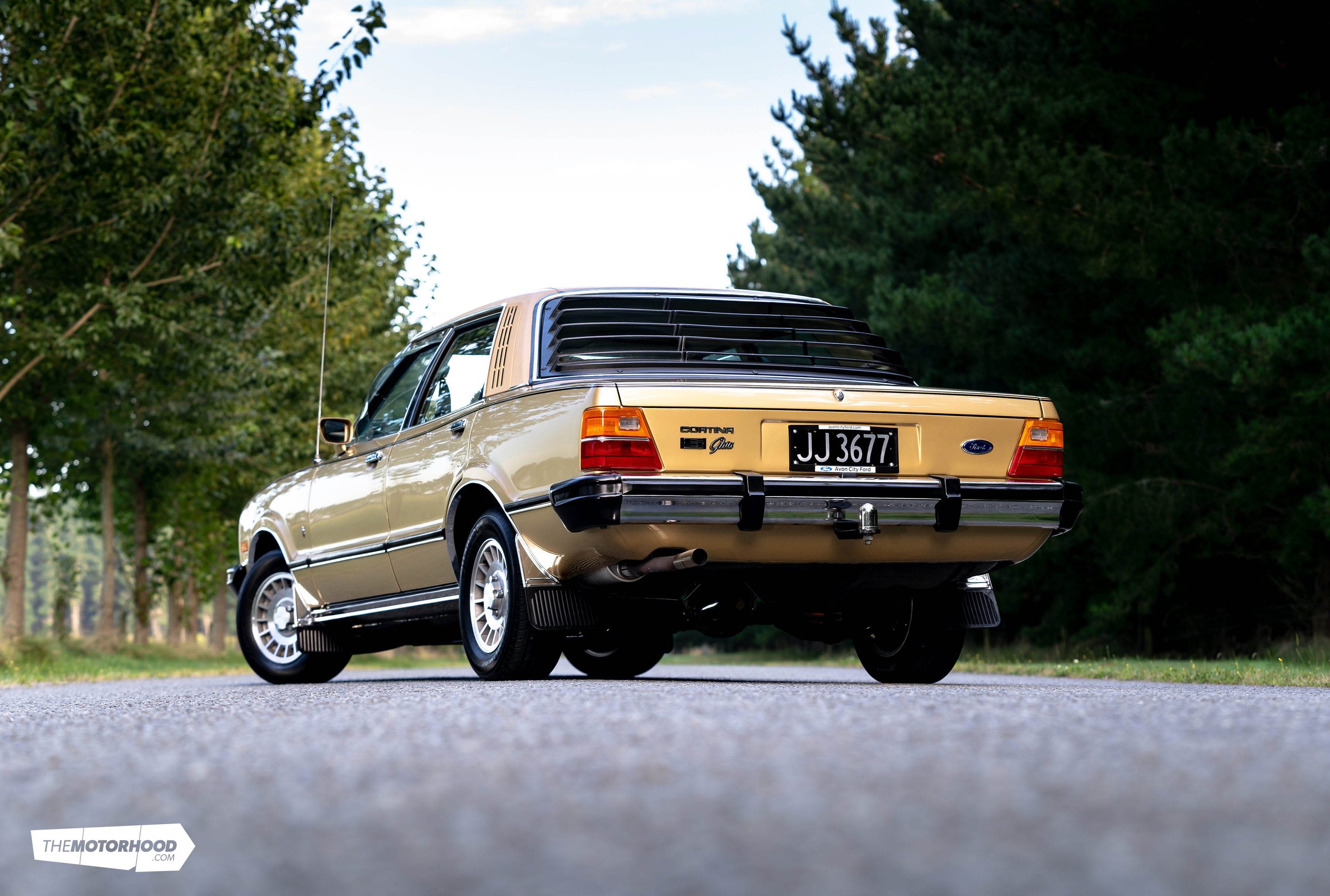
Think of a big Aussie-built Ford with a strong and torquey straight-six engine and the Falcon will inevitably spring to mind. But it could be the Ford Cortina.
The spacious and much-loved family saloon from Ford Europe was also built across the ditch and Ford Australia followed its instinct to make it a whole lot more appealing to the local market by installing one of its long-legged straight-sixes. In the spirit of ‘if you can’t beat ’em, join ’em’ the Mk4 TE gave buyers the option of not one but two strong-pulling crossflow six-cylinder engines. It wasn’t the first Cortina to have the option of a six-cylinder. The idea had naturally occurred to Ford earlier in the model’s long production life, with that honour going to the Mk3 TC and TDs with their pre-crossflow six-pots — but that’s another story entirely.
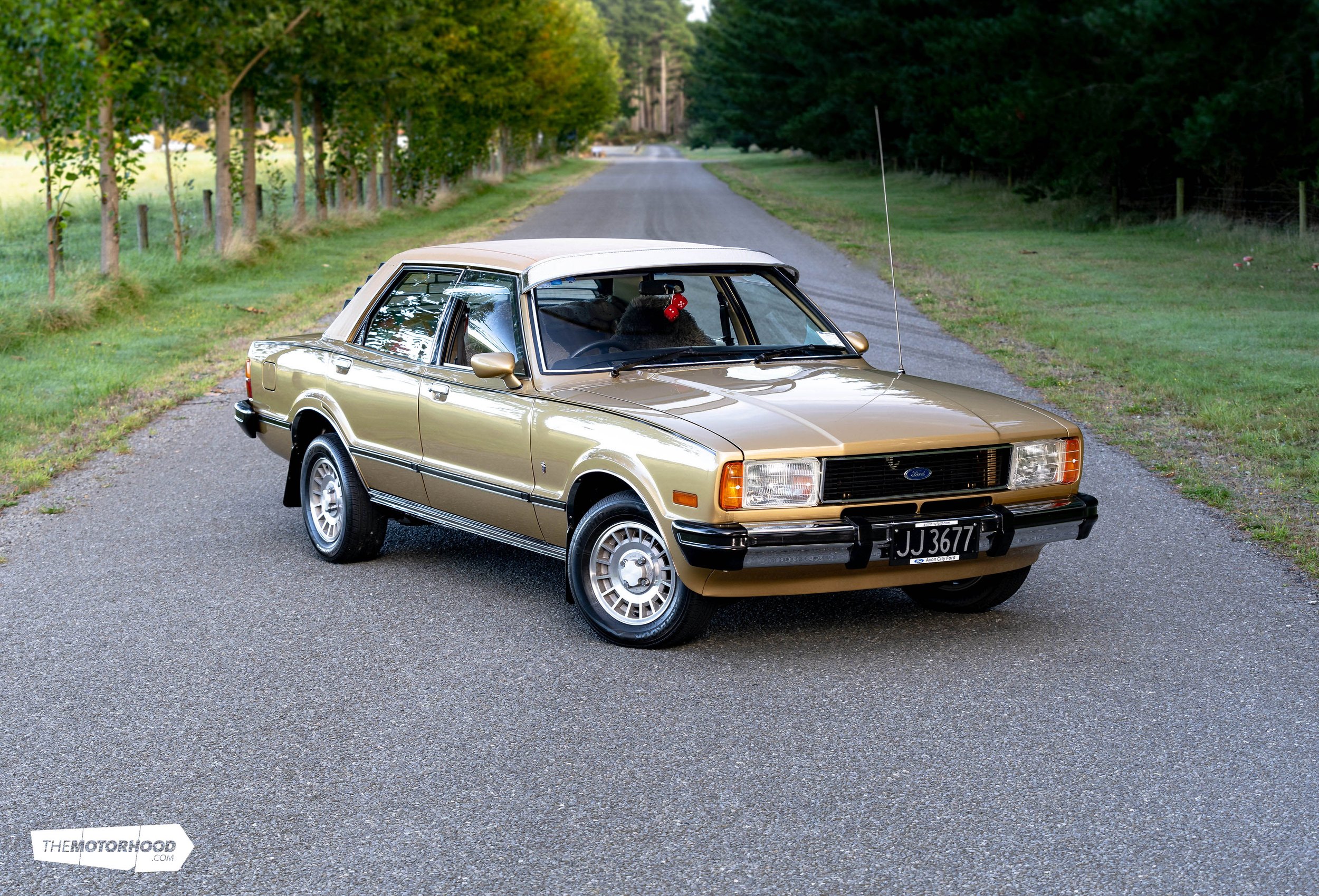
The Mk4 TE was launched in 1977. The first six offered as an option was the 3.3-litre crossflow six-cylinder for the L-sedan, L-wagon, GL-sedan, and GL-wagon alongside the regular two-litre four-cylinder. However it was the flagship Cortina Ghia that gave buyers the ultimate in six-cylinder Cortina motoring.
Under the bonnet sits a 4.1-litre crossflow straight-six mated to either a four-speed manual or three-speed automatic transmission. Power was rated at 92kW at 3700rpm. The Australian-only front suspension fitted to the TE was actually 13kg lighter than the standard and Ford claimed it gave better handling. It would also serve to mitigate the extra weight of the bigger iron block.
Ford’s development costs for the Mk4 TE were around AU$16M of which $5M went to front-suspension tweaks and modifications. Ford also added brakes with vented rotors to give better brake-pedal feel and a new taller bonnet was needed to clear the big six.
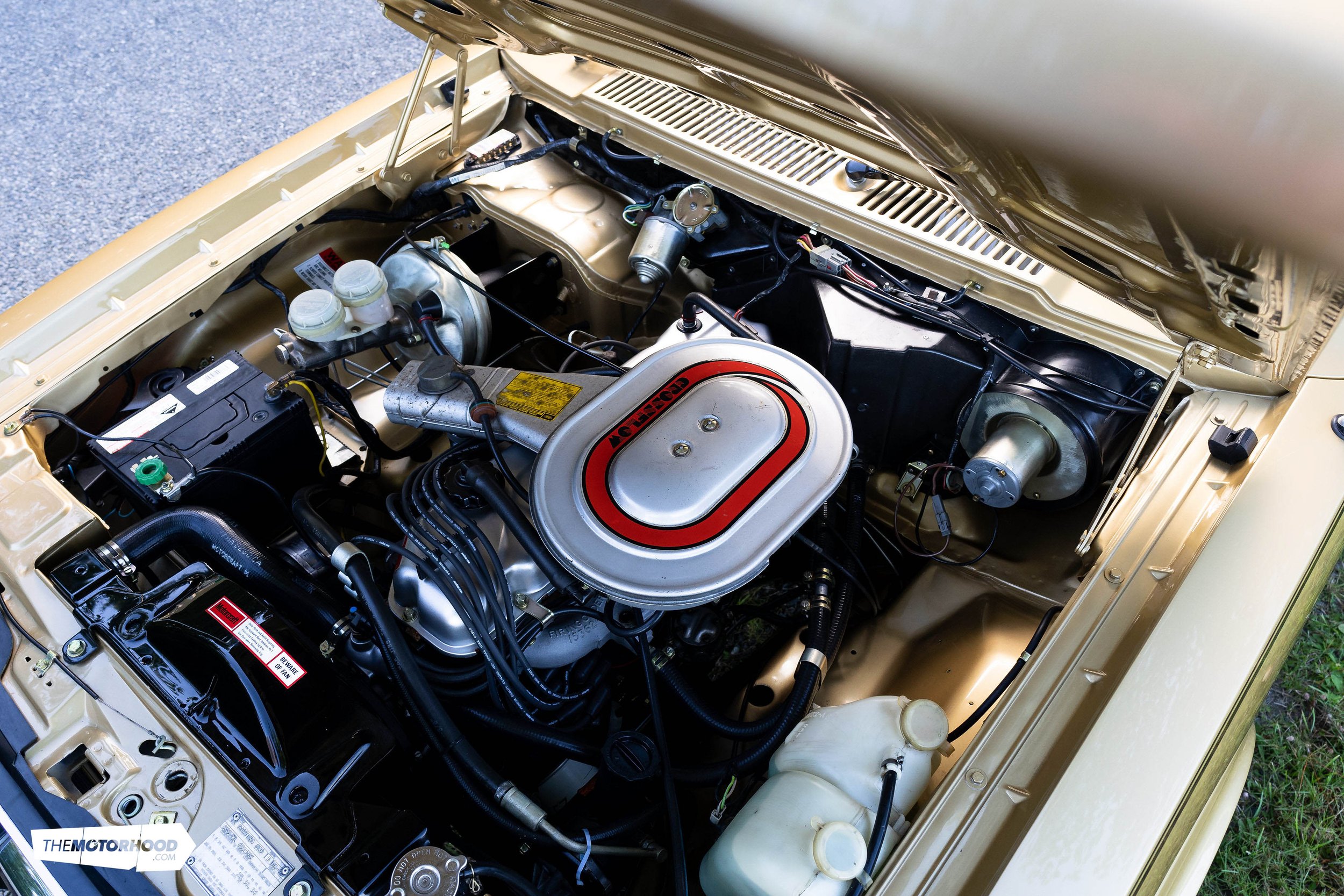
The TE only lasted two years in production and was thrown into the medium-saloon segment just as it was starting to rise in popularity. Sadly the Ghia with its 4.1-litre was not a huge seller, as many buyers opted for the extra space and presence of the perennially popular Falcon. In New Zealand TE 6s were as rare as hen’s teeth, to the extent that even people who think they know cars will scoff at the notion that a straight-six Cortina ever came out of a Ford factory.

First Sighting
One of the few who knew what made the TE 6 special is the owner of renowned Christchurch firm RO Jones Panelbeaters Ltd, Karl Stohr. A long-time Cortina fan, Karl acquired one of the tidiest and rarest of Cortina TEs in New Zealand, thanks to a joint effort with a friend: “I came across it sitting in a car yard in New Plymouth in 1998,” he says. “I was with my good friend Keith Jarman. He also has a TE six-cylinder and knows them inside and out.
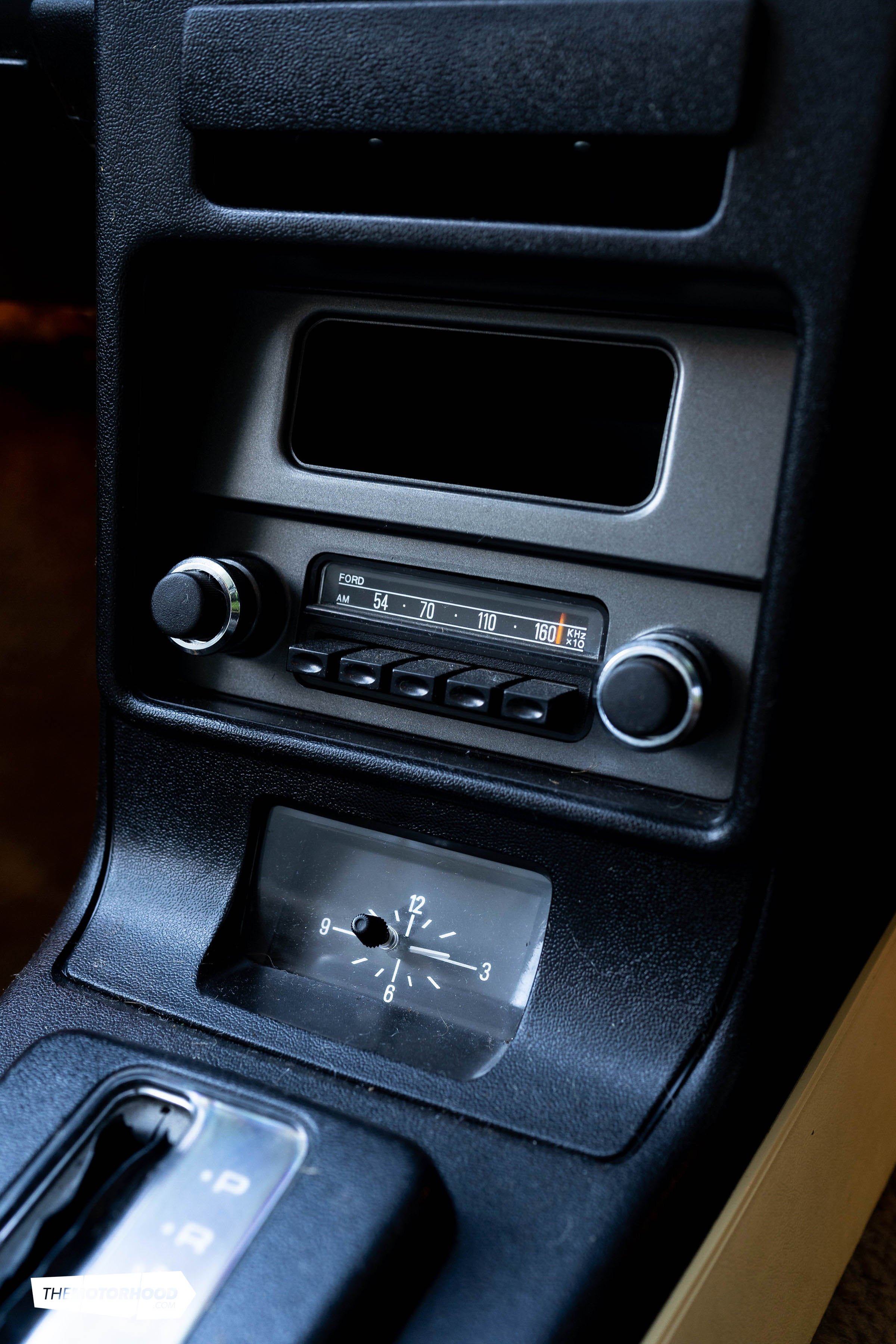
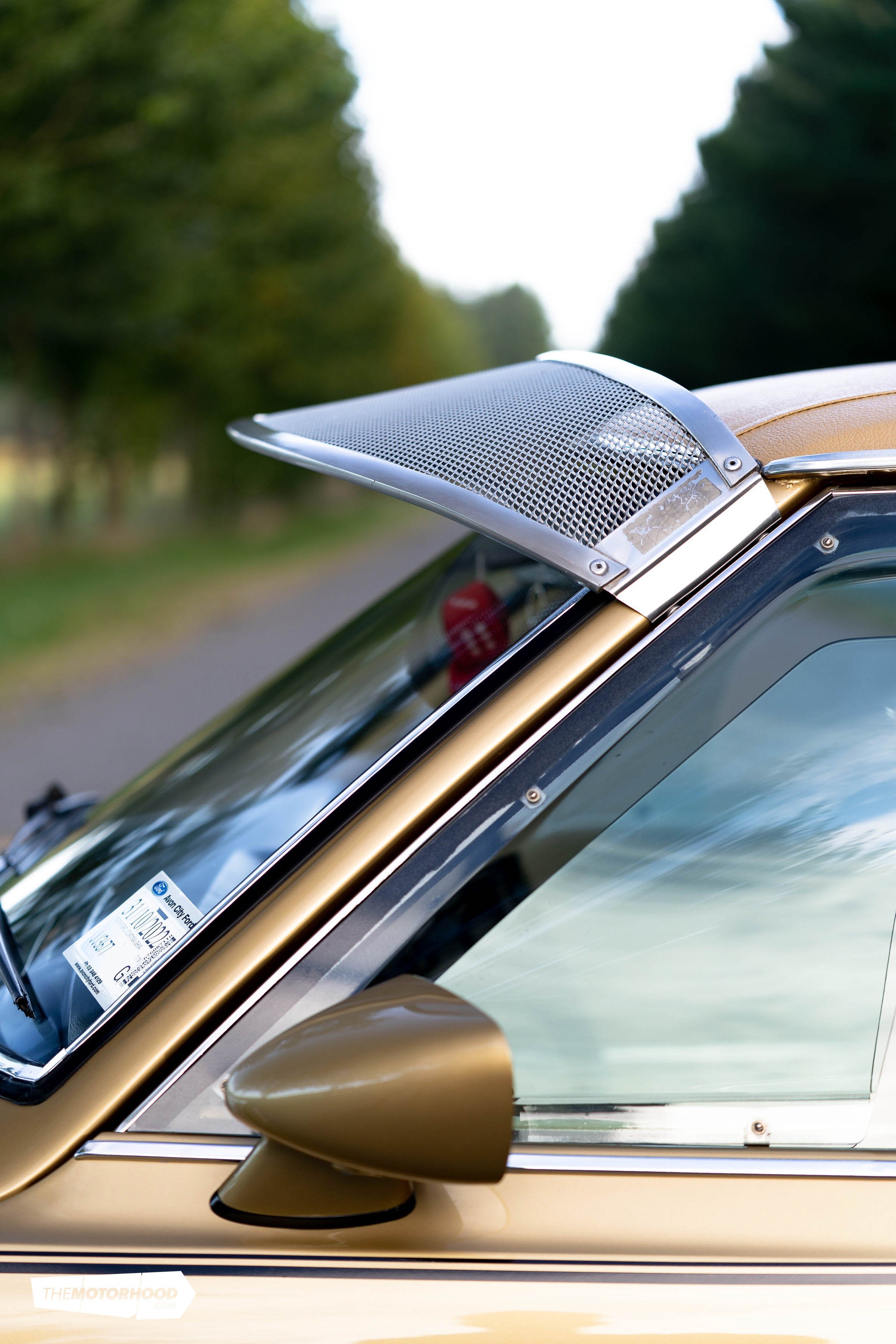
“We started giving it a look over and even started recording it on video. It had done only 38,000km. We were told by the owner it was being stored there and wasn’t for sale. The owner also said it had never been out in the rain — just as it started spitting,” he says with a laugh.
The following year the Cortina did change owners much to the surprise of Karl and Keith. The new owner was a member of the local Cortina club. “I knew the guy who had bought it and said to him that if he ever wanted to sell it, I would be more than happy to take it off his hands,” says Karl.
A good part of the reason why the car has retained so much of its original condition is that it spent the next 10 years in storage. In 2012 the car was offered to Karl. He jumped at the chance and drove to Rotorua.
If you have been told a car has been stored it can still be an anxious wait until you see it with your own eyes. On arrival Karl rediscovered the Cortina that he tried to buy a decade earlier sitting in an implement barn looking remarkably like it had done a decade before. A few months after re-viewing a deal was done. Karl picked a nice weekend, drove back to Rotorua, picked up the Cortina, and drove it to New Plymouth with his friend Keith following close behind.
Due to its decade-long hibernation and low mileage the Cortina was still in great shape inside and out: “It was actually pretty good when I found it. I reckon much of it was the same then as it is now.”
That said, Karl, a self-confessed perfectionist, thought the gold paint could do with a little extra sparkle. “In 2020, just after the first Covid lockdown, I had it painted. It was one of those things that started just at the bonnet. I will admit I probably went a bit over the top,” he says. “People would look at the car prior to the work and say that it didn’t need painting but that wasn’t good enough for me. I guess I am a bit of a perfectionist,” he laughs. “The end result is an example preserved for future generations to enjoy.”
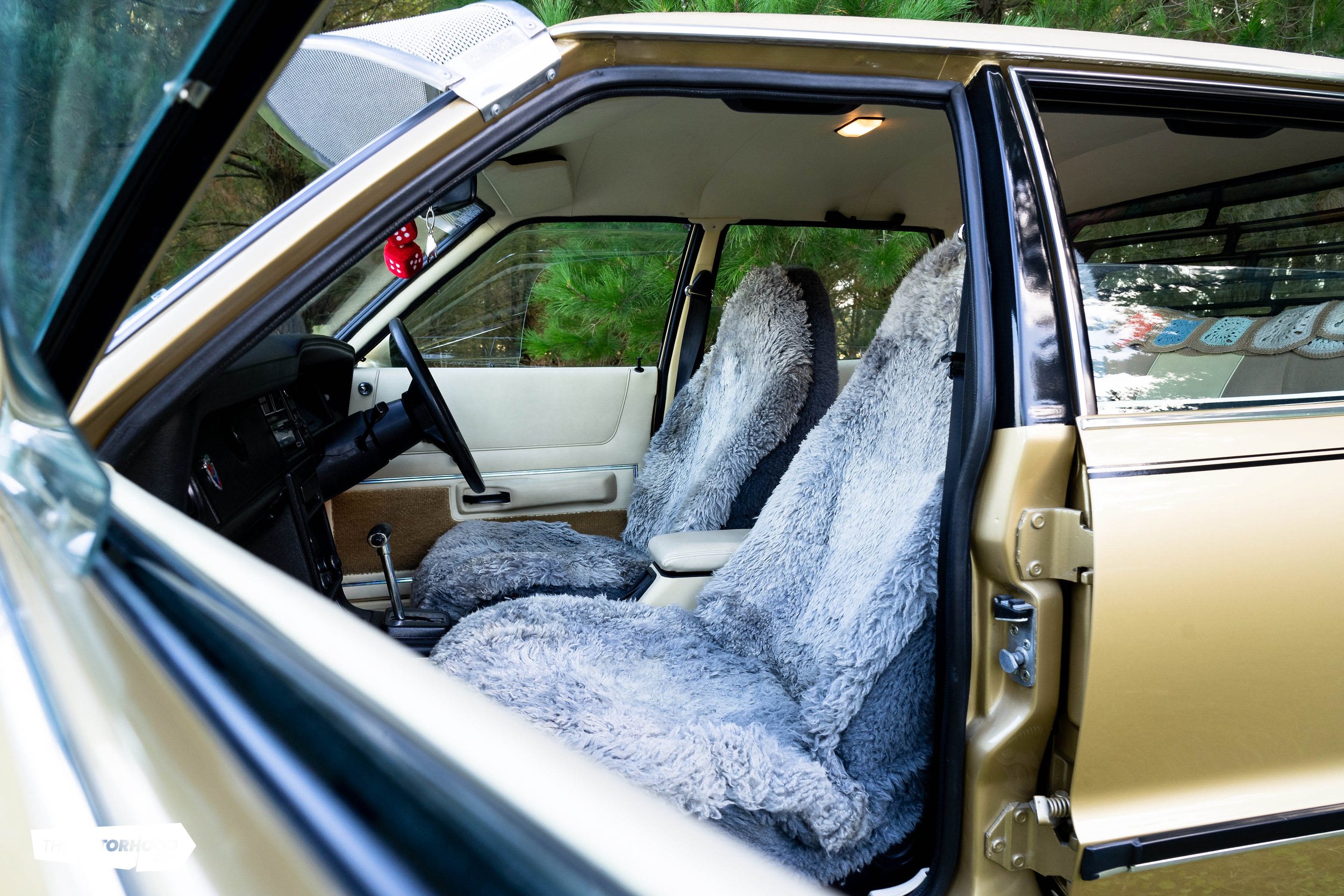
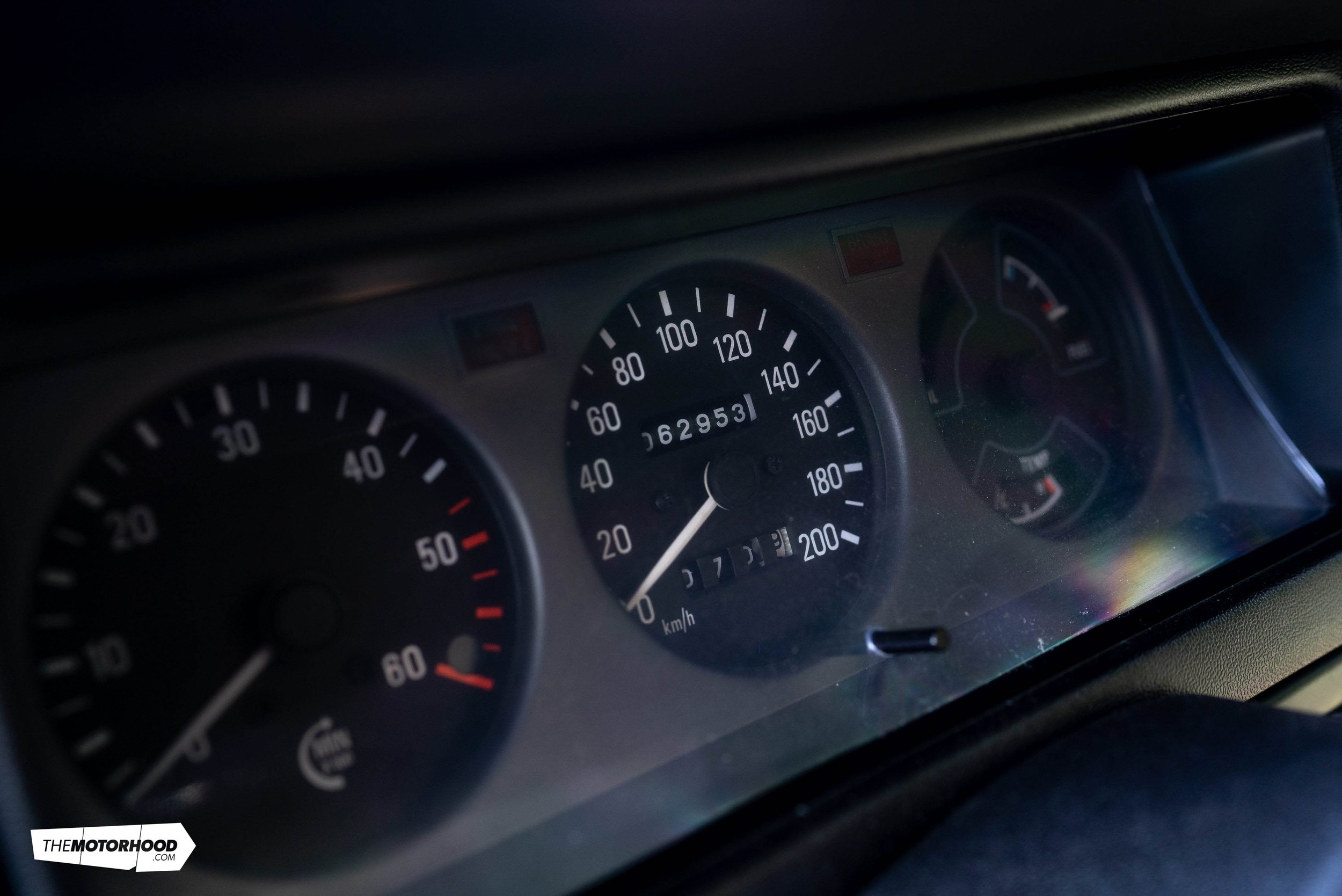
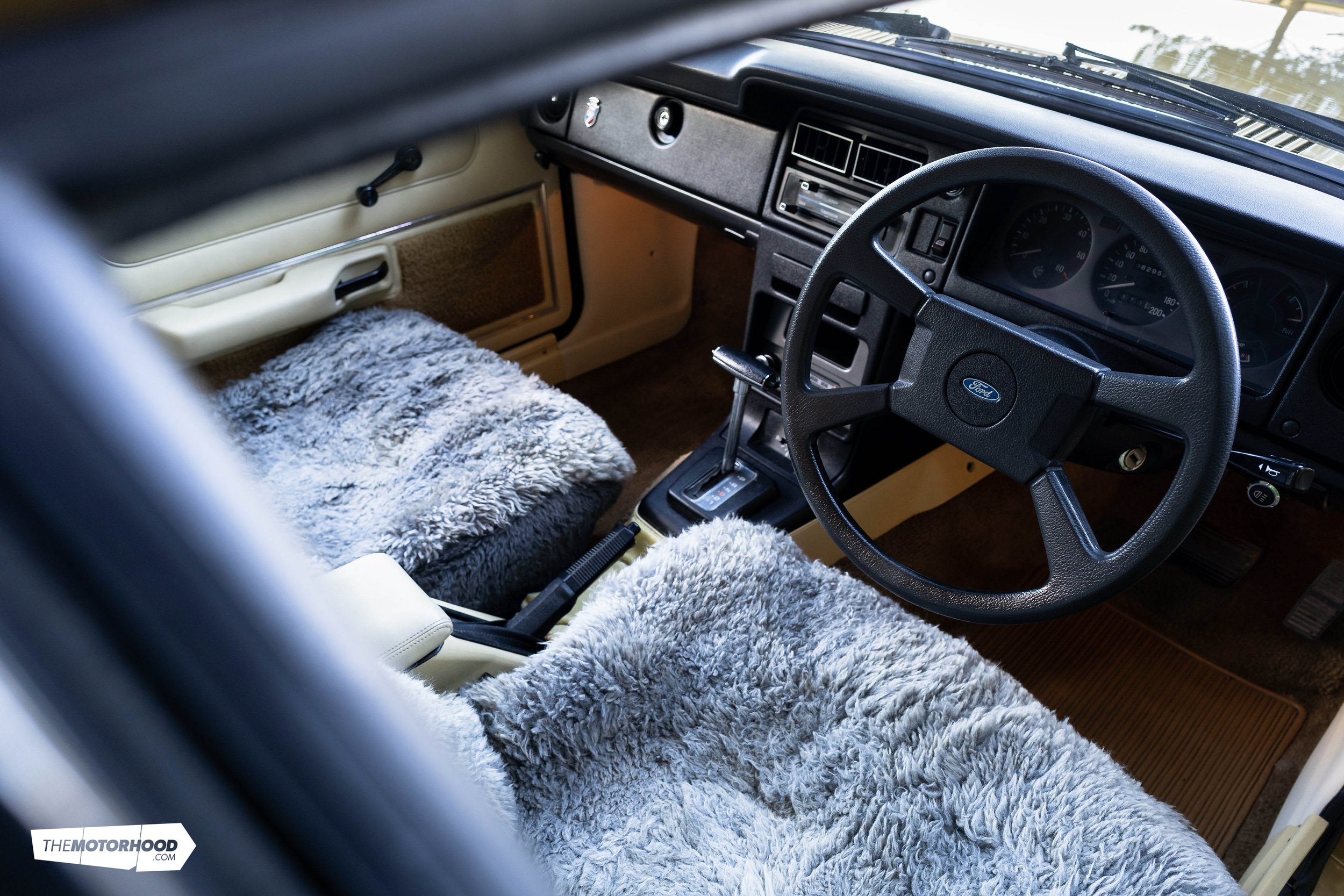
Original Condition
Thanks to the Cortina’s history and Karl’s determination to keep it pristine his TE 6 Ghia still has very few kilometres on an engine designed to cover big miles.
“I would say that it is probably the lowest mileage six-cylinder Cortina TE in New Zealand,” he says. “The engine has been reconditioned due to it sitting up for so long but to date it has done 62,500km. Apart from the louvres, sun visor, and the chrome around the wheel arches and the sills, it is all original spec.”
Karl also knows that he wouldn’t be enjoying this Cortina today without the help and advice of his friend Keith. After the refurbishment Keith flew down for the first starting of the car, and helped commission and run it in. He knows these cars so he was a big help. Karl says that Keith knows enough to keep the Aussie fans on their toes when it comes to Cortina parts and originality.
Due to the commitments of running his panel and paint business, Karl’s Cortina doesn’t come out to play as often as he would like: “I would only do around 300km in it every year. Some years it might be 1000km but running RO Jones takes up most of my time.”

Hop inside the Cortina TE and you are immediately immersed in ’70s British motoring. Anyone who spends a lot of time with Fords, Rovers, Triumphs, and just about anything British built either in Oz or overseas during the ’70s will know the ambience and even the aroma.
Karl’s Cortina is like a ’70s time warp. The original condition of everything bar the floor carpets and sheepskin seat covers boggles the mind. Everything from the factory stereo to the trim pieces and switchgear is exactly how Ford left it. There are mint Cortinas out there but Karl’s is rather special.
Sitting in the passenger seat Karl hops into the driver’s seat and immediately a small grin spreads across his face. He knows we are both in for a treat. It’s obvious just how much Karl likes this car and not using it as much as he would like to only increases his pleasure when he does get the chance. He turns the Ford-embossed ignition key and the Falcon-sourced six cranks over. It sounds silky smooth, just as it must have in its first months after leaving the factory.
Karl manoeuvres the Cortina out of RO Jones Panelbeaters. Moving through inner-city Christchurch the deep-breathing six pulls strongly with the nice even beat that only a six can produce. As Karl provides an increase of throttle, the bonnet lifts ever so slightly. The torque makes itself known and you waft forward in what could only be described as hip-hugging comfort.
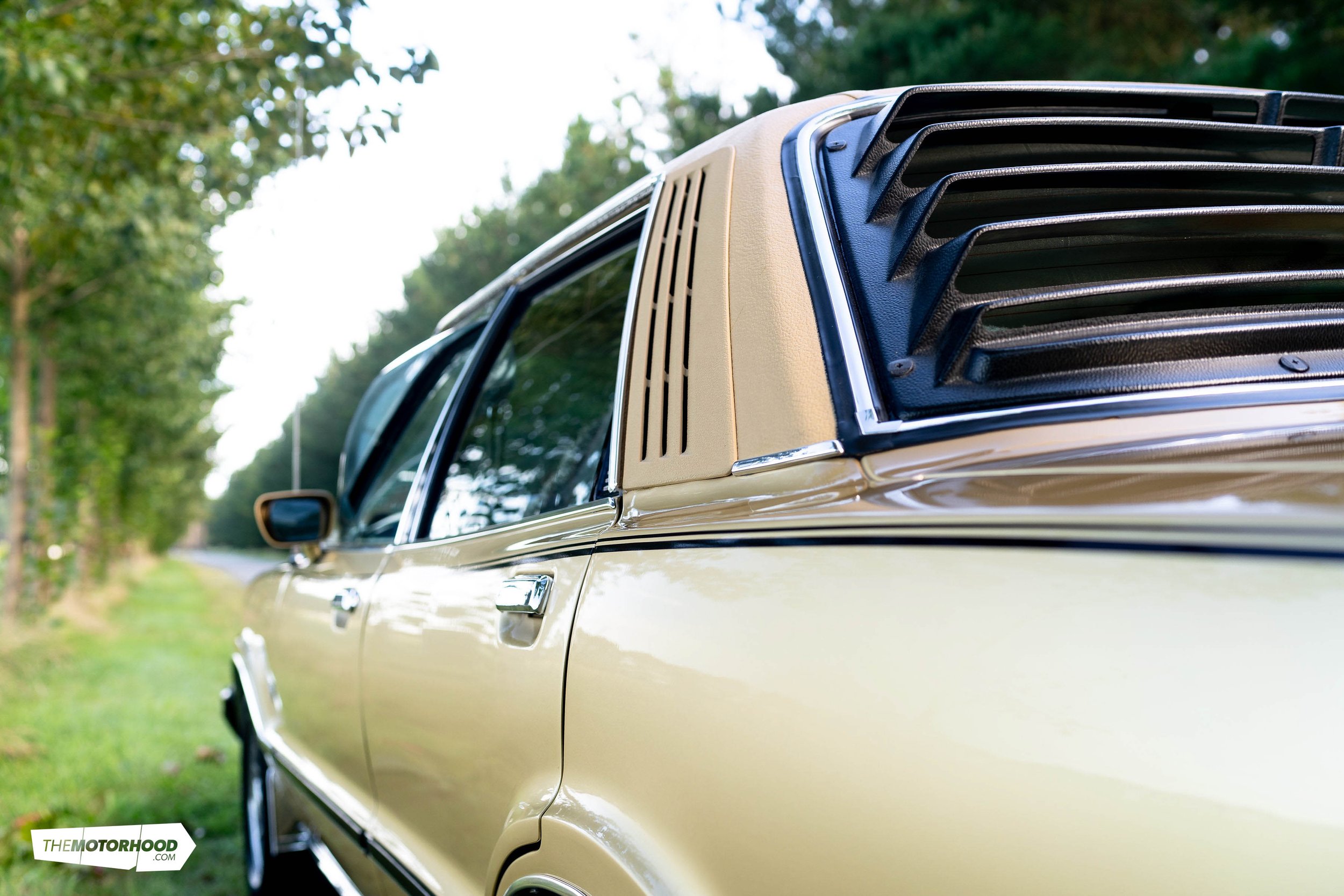
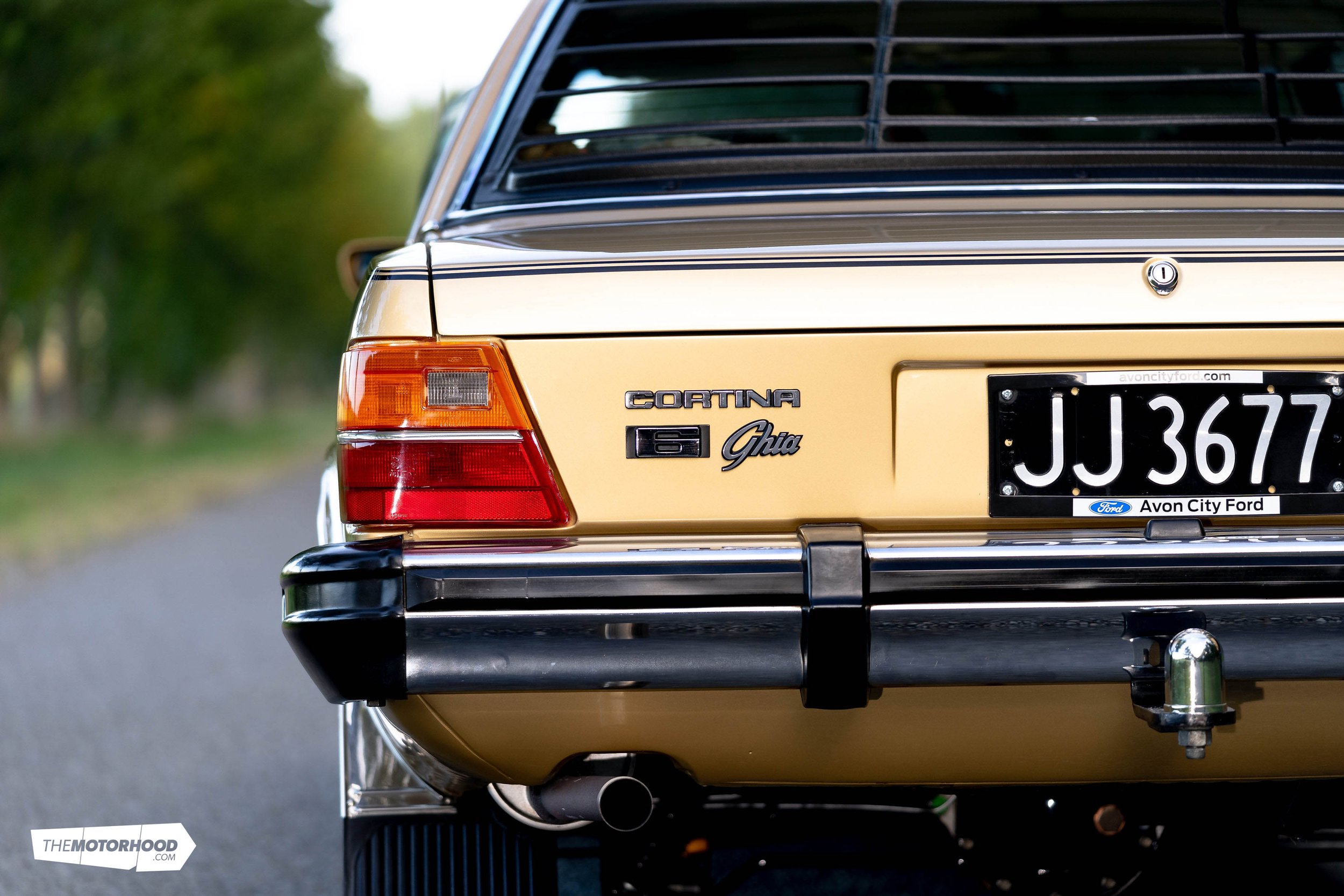
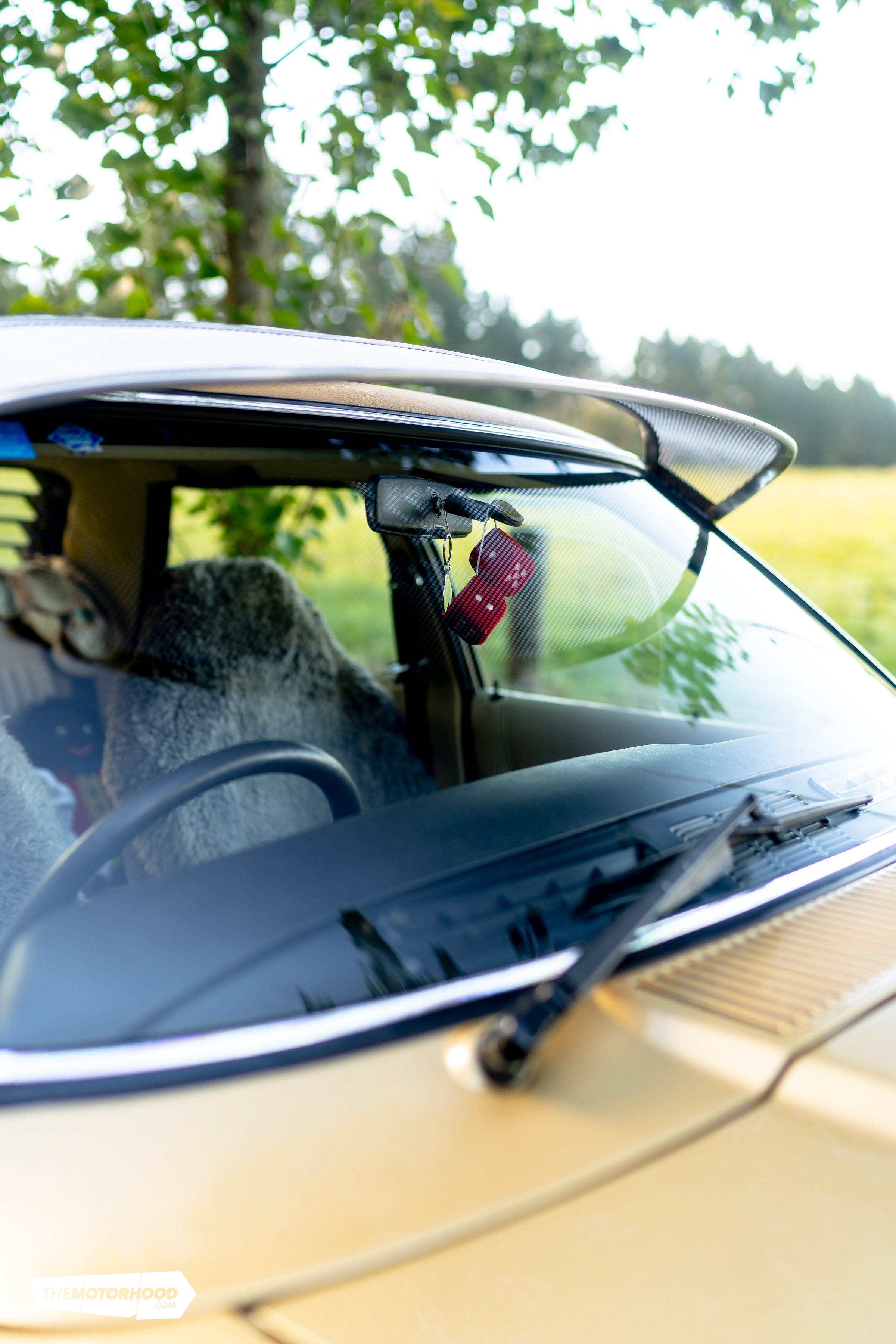
Double Take
Motoring up Colombo Street, there’s more than a few bystanders doing a double take as we pass. I like to think they comprise two categories: those who think Wow, that’s a mint Cortina, and those who think Wow, what a mint old car. Either way, Karl’s Cortina TE 6 gets the looks.
Moving onto a section of motorway overpass Karl opens the taps. The bonnet rises more rapidly this time and the engine note turns to a purposeful hum. It really is silky smooth throughout the rev range. The Australian suspension also makes its presence felt as a departure from the Euro-spec Cortina norm. It is supple, almost soft, without being too bouncy.
Soon we pull over and swap seats. At the helm the TE 6 Ghia confirms the impression of being a relaxed cruiser. The steering is light and while there’s some pedal travel before that six engages, once you are moving it’s a delight. The power-to-weight ratio of 160 horsepower (hp) to shift just 1060kg made it a sparkling performer in its day and it’s no slouch today either. As expected it is not a rev-happy unit but its seamless delivery of torque makes it a bona fide classic mile-muncher. Says Karl, “You could easily do a long trip in it.”
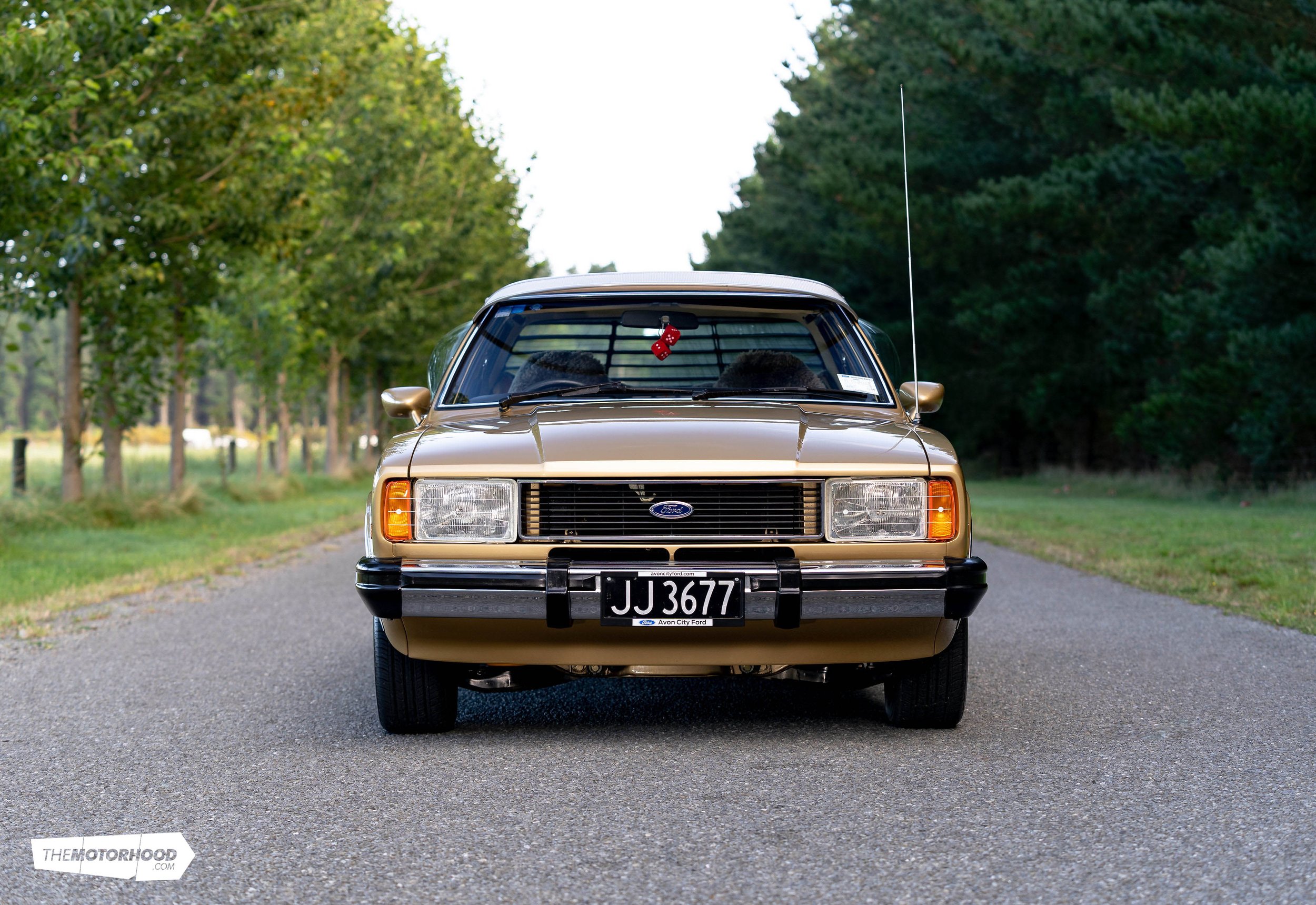
You do have to stand on the brakes as is usual with older cars but it reminds you of the extra weight in front, which you notice again in the corners. But when it comes to sitting back and letting the buckets of torque do their thing it’s rather lovely indeed. Karl’s Cortina grabs attention wherever it goes. “It’s different, authentic, and you just do not see them anymore,” he says. “People are always commenting on the car, thinking it’s a regular old Cortina.
They are often surprised to hear that it is a factory straight-six.” When asked if he plans to hang on to it long term, he replies, “It will never be for sale.” While this mid-sized Ford six was met with mixed reviews when new, today it’s a proper classic thanks to dedicated owners like Karl.
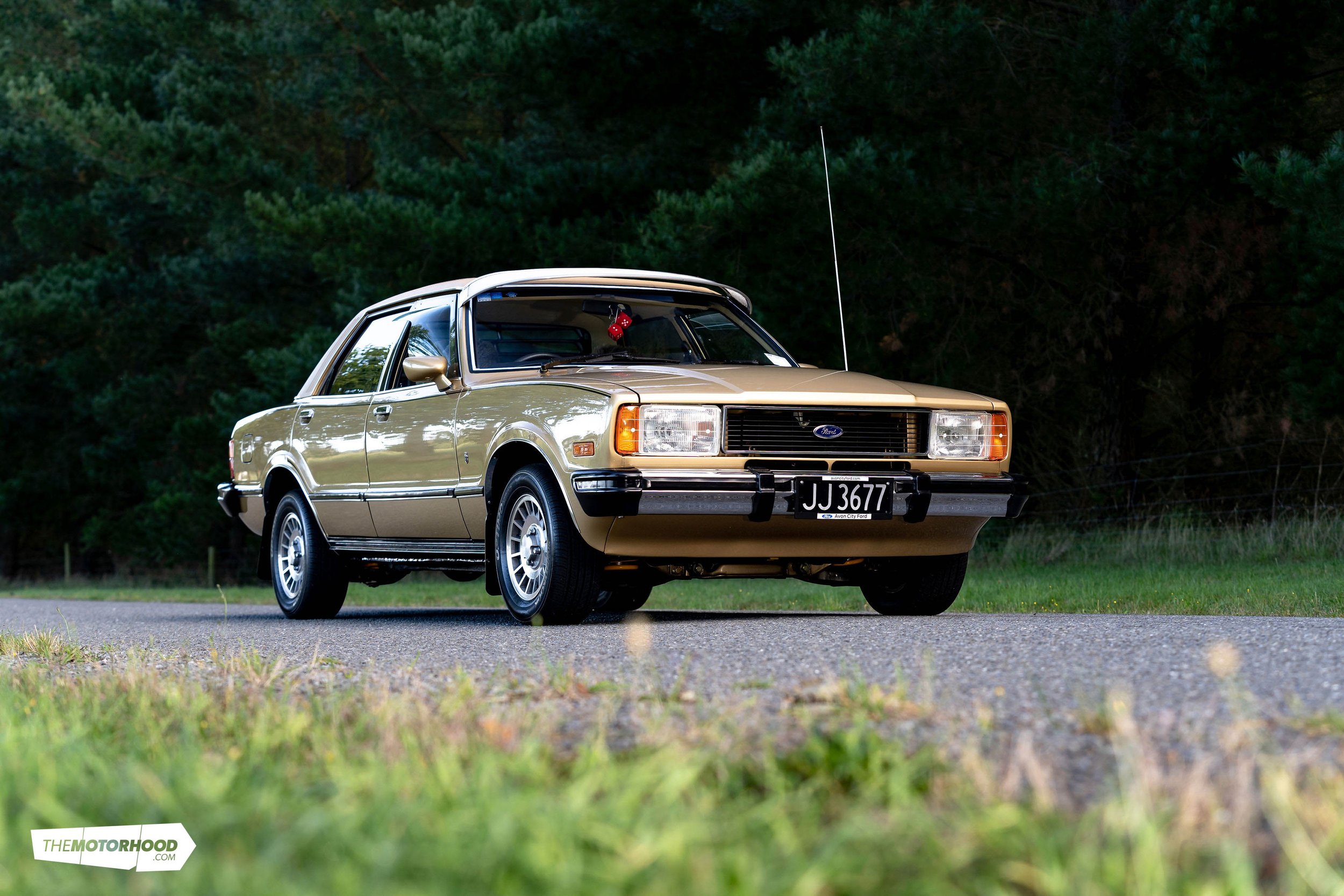
This article originally appeared in NZCC issue No. 378

